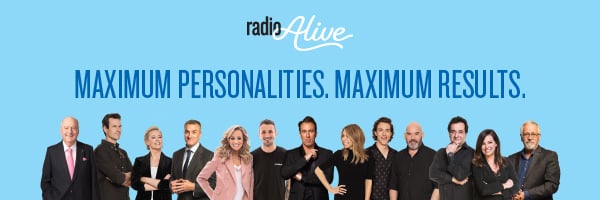Mark Little was the founder of the Storyful company, which has now been sold to News Corp. His current venture is Kinzen, a new product that is designed to deliver personalised news.
Mark Little and NPR’s Tamar Charney shared their thoughts on the future of new at Radodays.
“There is now a community of one for consumers of journalism. Every person expects news to be adapted to their interests,” said Little.
Active news seekers gather information that gives them power in their life, but they are sick of information overload. Kinzen seeks to solve that problem.
According to Pew Research, 68% of US adults feel overloaded with information, and 54% of facebook users adjusted their privacy settings last year to slow the ever increasing stream of information.
Only 4% of web users have a lot of trust in the information they get on social media.
Little thinks we are moving to a third stage of online news consumption. “The first phase was search, the second was social, now we are moving into the third personal phase of the internet… The empowered news seeker is seeking a personal news experience.”
Three trends will determine the shape of news as we go forward, according to Little:
Quality – people are being sensitised to pay for quality content.
Curation – users want information curated to their interests
Productivity – audiences want more focus on meaningful content that makes them more informed and/or productive
Kinzen is a company that experiments for publishers and broadcasters by rethinking personalisation. Current personalisation engines use your browser history, but that is “the worst way to do personalisation,” according to Little.
“If we ask you what you want, and get feedback from their choices, then the user will get involved and have a more meaningful experience. But is must not be hard work or people will drop out.”
His work so far on Kinzen has shown Little the high value of highly focused newsletters pushed direct into people’s inboxes at times when it is most useful to them. “Build me a newsfeed that understands the rhythm of my life,” is the feedback from his users.
There is toggling between audio and text as people use the Kinzen app to keep up with news, perhaps reading the text on the bus or train on the way home, but then switching to a synthesised read of the text when they are walking the dog or cooking dinner.
Lessons learned about personalised media:
Don’t be creepy – don’t surprise the user with how much you know about them, just understand them.
- Put the user in control.
- Give them a curated experience.
- Success is when people get the most useable information in the least amount of time (not endless scrolling experiences)
- Context is king
- Data from personalisation is not your data, it’s the user’s data

Tamar Charney, the Managing Director of Personalization and Curation at America’s National Public Radio shared the experience of the NPR1 app, which was an early personalised app.
Charney asked: What would public radio look like of we created it today?
- It would be on demand
- It would be geo-enabled
- It would be cross platform – delivers what you want at different times and places via many devices
- It would be personalised
They were the ideas behind the foundation of NPR1.
“I come from terrestrial radio where listening time is short. With NPR app we have data flows up to 30 mins at a time… On the app we not only get measures of listening we get measures of ‘love’ via likes and other direct interactions.
“A like may not always reflect the audience’s real response, but how long they listen does… and they are listening longer.”
According to Charney, most skipping happens in the first 30 seconds on the NPR app. If they stay beyond 30 seconds then they listen longer and respond to the content of the story.
What works in podcast audio? Here are her tips:
- Start strong
- Respect your audience’s time, they don’t want their time wasted
- Think audience
- Content must be compelling, relevant and essential
Every 10 years there has been a major shift in audio technology. Charney believes voice assisted technology is the next major shift for this decade. 21% of Americans own a smart speaker.
Recognising the growth in this area, NPR has a page to help people tune their smart speakers to NPR at www.npr.org/smart.
In the recent US state elections people were asking their smart speakers to give them updates on the results.
‘Ask NPR for an update on elections,’ was a highly requested phrase.
“We didn’t develop NRP 1 to do this, but we are seeing that people are asking for these tings now because they can due to the combination of smart speakers, voice commands and artificial intelligence…
“They still want the updates from us, because they need to trust the source of the information they are getting,” she said.


